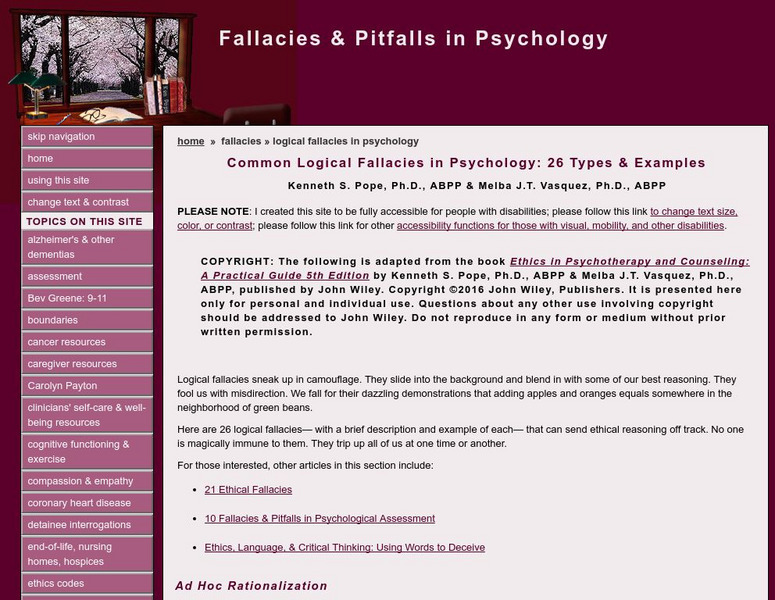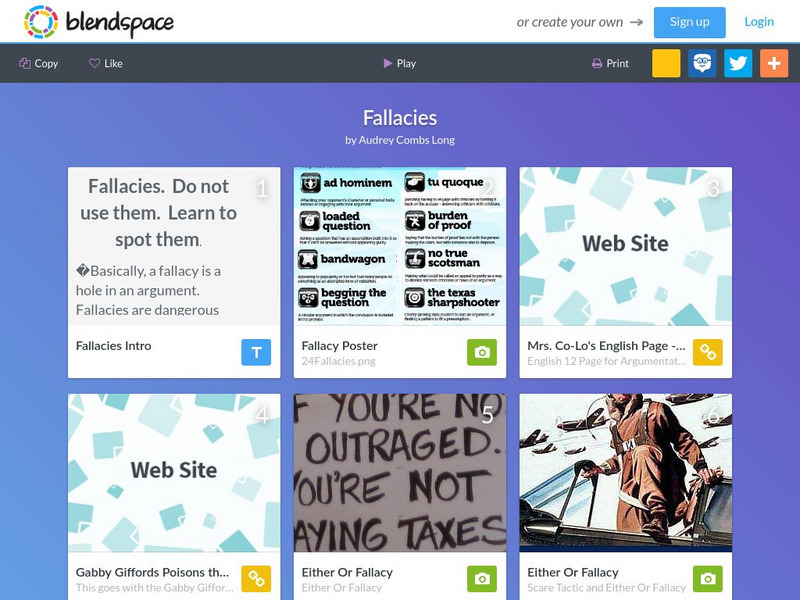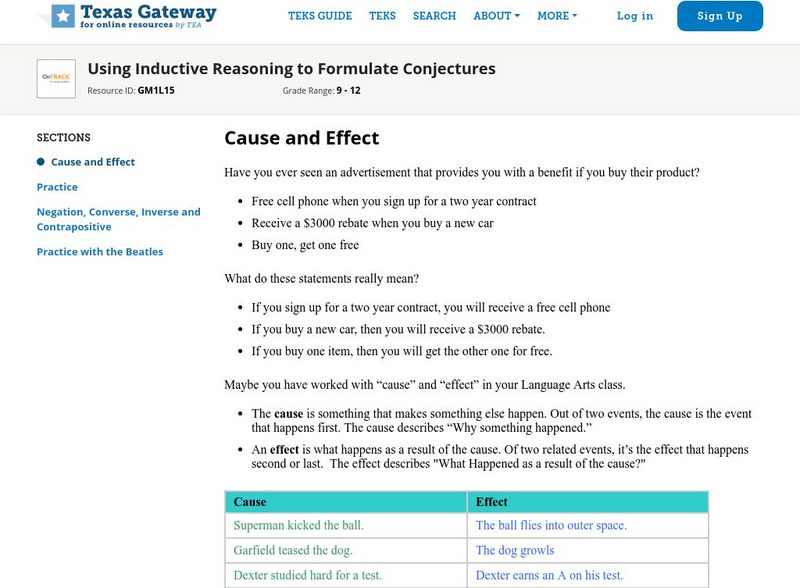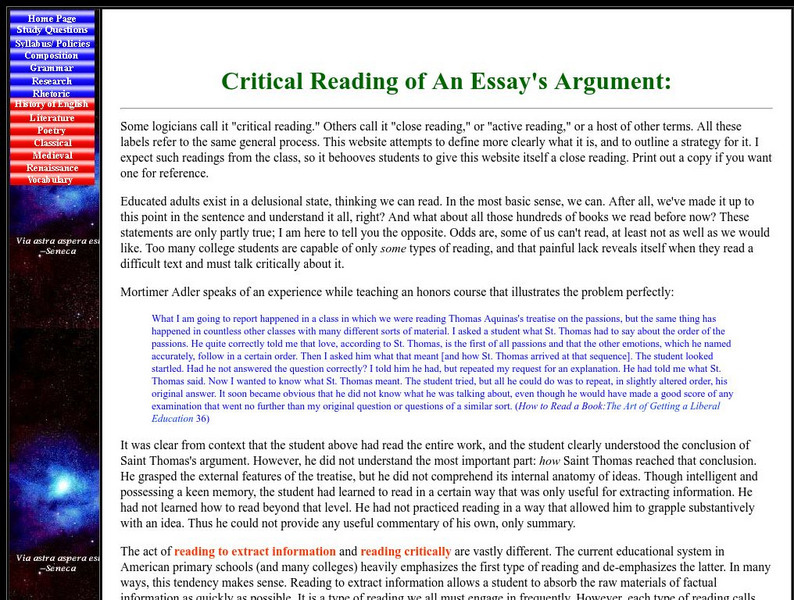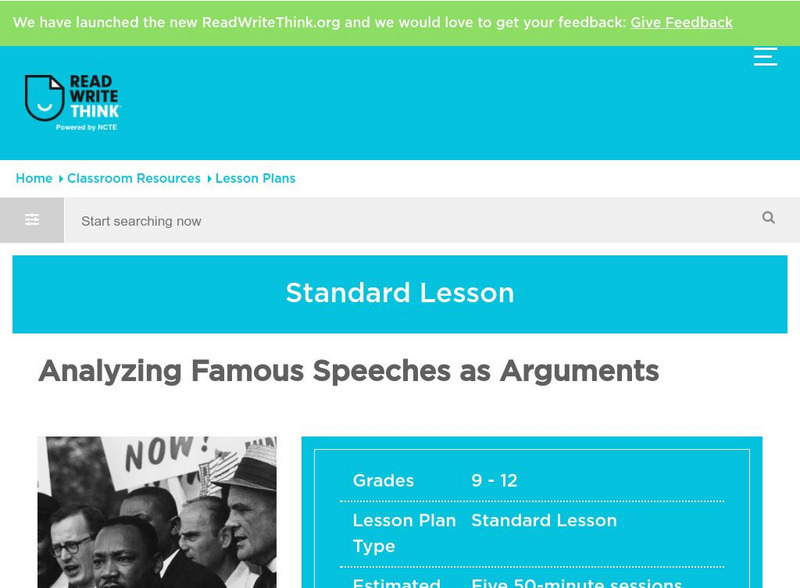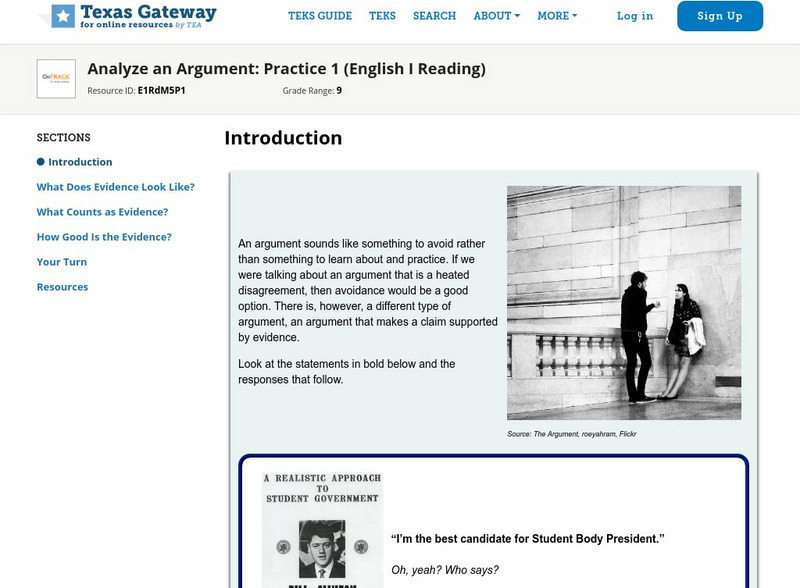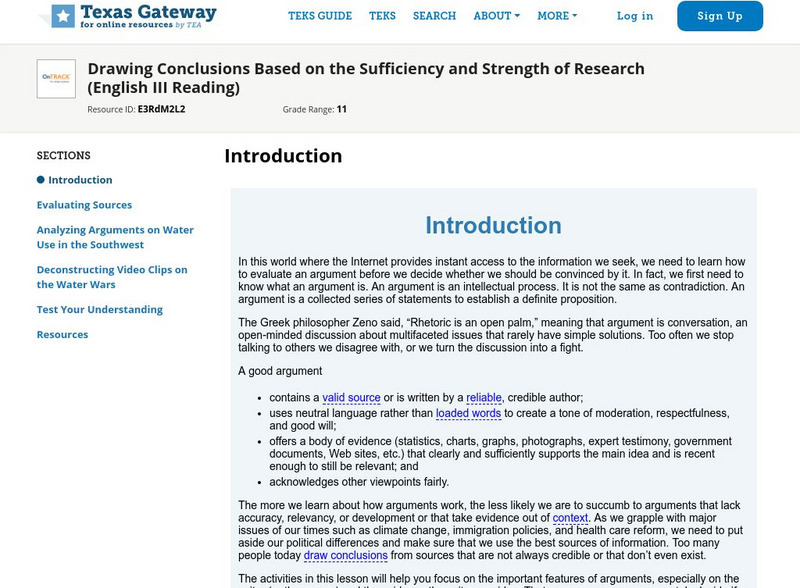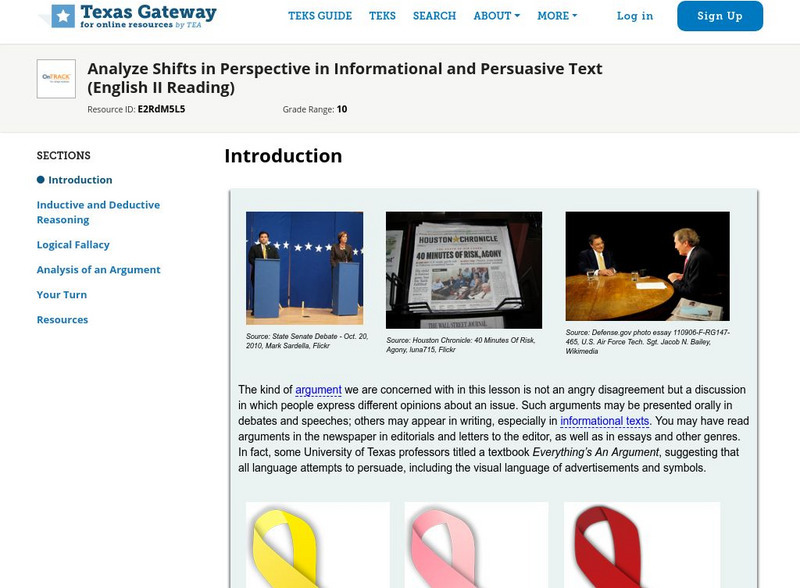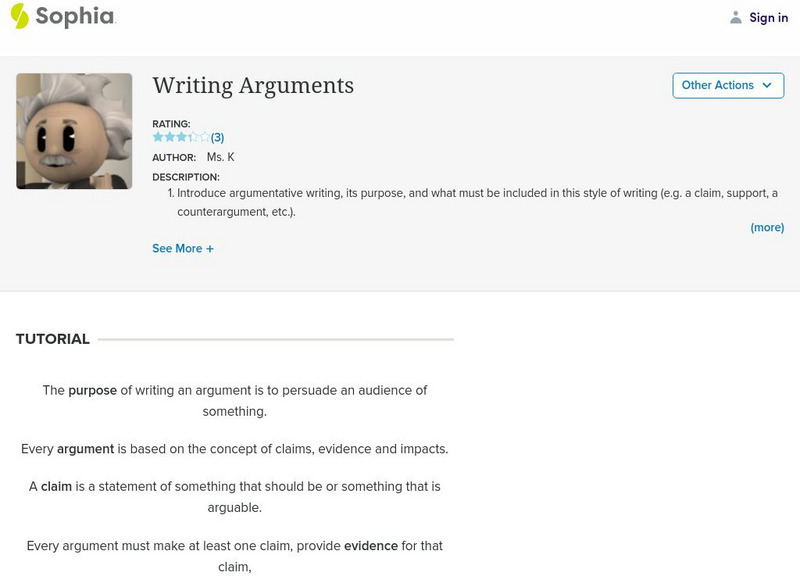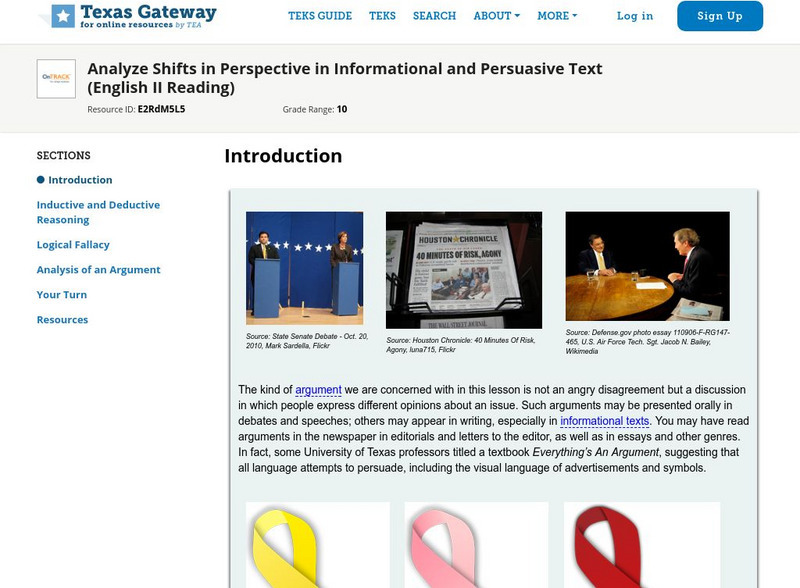Curated OER
The Federalist Papers
What were The Federalist Papers? If you're preparing your class for a quiz on this topic, consider providing them with these thought-provoking study questions. Ten questions are provided, although only three contain possible answers.
Georgia Department of Education
Ga Virtual Learning:"distinguishing Fact, Opinon, & Reasoned Judgement" [Pdf]
This is a PDF entitled "Distinguishing between Matters of Fact, Matters of Opinion, and Matters of Reasoned Judgement," which focuses on how to separate fact from opinion, provides examples, and offers a practice activity.
Other
Fallacy Files: Main Menu
This site contains a wealth of information about logical fallacies (flawed logic) and gives detailed explanations of some of the most common forms, which are listed in a menu along the left hand side of the page. Since many of these...
Other
Fallacies & Pitfalls in Psychology
This page lists and explains 18 of the most commonly used logical fallacies. "The name of each fallacy is followed by a brief description and an example from the field of psychology."
Virtual Salt
Virtual Salt: Introduction to Critical Thinking
An introduction to the concept of Critical Thinking examines the true definition and gives examples where it can be used as a constructive force.
TES Global
Blendspace: Fallacies
A thirty-part learning module with links to texts, images, websites, and videos about common fallacies found in arguments.
Texas Education Agency
Texas Gateway: Using Inductive Reasoning to Formulate Conjectures
Students will practice identifying the converse, inverse, and contrapositive of conditional statements.
Other
Carson Newman College: Critical Reading of an Essay's Argument
Extensive examination of what it means to critically read an argument. This process is sometimes called "critical reading," or "close reading," or "active reading." First the differences between reading to extract information and reading...
ReadWriteThink
Read Write Think: Analyzing Famous Speeches as Arguments
This multi-session activity features the opportunity to analyze a variety of famous speeches. Learners will look carefully at tone, rhetoric, propaganda techniques, and historical context as they write an analysis paper....
Texas Education Agency
Texas Gateway: Analyze an Argument: Practice 1 (English I Reading)
In this lesson, students practice analyzing the evidence that supports or opposes an argument. They are also going to learn to analyze the quality, relevance, and credibility of the evidence so you can decide whether to accept the...
Texas Education Agency
Texas Gateway: Differentiate Among Empirical, Anecdotal, and Logical Evidence
[Accessible by TX Educators. Free Registration/Login Required] In this lesson, students will learn about three types of evidence that writers often rely on: logical, empirical, and anecdotal. It will also help you distinguish among these...
Texas Education Agency
Texas Gateway: Distinguishing Between Inductive and Deductive Reasoning
This lesson focuses on distinguishing between inductive and deductive reasoning. Sometimes it's difficult to separate these two types of reasoning because we often use them together; drawing conclusions in inductive reasoning is likely...
Texas Education Agency
Texas Gateway: Drawing Conclusions on the Sufficiency and Strength of Research
The activities in this lesson will help you focus on the important features of arguments, especially on the writer (or the source) and the evidence the writer provides. That way, you can more accurately decide if an argument is valid and...
Georgia Department of Education
Ga Virtual Learning: Logical Fallacies List: Arguments to Avoid [Pdf]
This is a multi-page PDF list of logical fallacies to avoid when writing. These include a detailed list includes fallacies in relevance, reasoning, omission, and ambiguity; and discusses the logic tool "Occam's Razor." This list of...
Texas Education Agency
Texas Gateway: Evaluating the Effectiveness of Arguments: Identify Fallacies
This lesson focuses on learning to spot logical fallacies in arguments. All of us need to acquire skills to protect ourselves from falling victim to tricks of logic. By learning to detect fallacies, you can protect your values, your...
Texas Education Agency
Texas Gateway: Analyze Shifts in Perspective in Informational & Persuasive Text
[Accessible by TX Educators. Free Registration/Login Required] In this lesson, students will read informational texts and identify varying perspectives in different arguments on the same topic. You will also analyze the reasoning and the...
Texas Education Agency
Texas Gateway: Analyze the Relevance, Quality, and Credibility of Evidence
[Accessible by TX Educators. Free Registration/Login Required] In this lesson, students will learn to analyze the quality, relevance, and credibility of evidence used to support an argument.
British Council
British Council: Essays: Structure 2
This website provides tips to writing which develops an argument. When writing an essay, show that the writer can construct a coherent argument and employ critical thinking skills, as well as support an argument with evidence.
Online Writing Lab at Purdue University
Purdue University Owl: Logic in Argumentative Writing
Provides a detailed explanation of the fundamentals of logic, including brief definitions of key terms and sections on fallacies and improprieties, as well as examples and practice exercises. Click on additional subtopics in the side...
Sophia Learning
Sophia: Writing Arguments
This tutorial focuses on argumentative and persuasive writing: it lists and defines the components of arguments, provides a flow chart for argumentative writing, defines counterarguments, and lists the 3 elements of persuasion: ethos,...
Georgia Department of Education
Ga Virtual Learning: Contemporary Issues: Persuasive Writing
This lesson focuses on persuasive writing including what it is and is not and the components of persuasive writing. It features links to guides including Purdue Owl: "Logic in Argumentative Writing" and Study Guides and Strategies:...
Sophia Learning
Sophia: Argumentative Essays
This tutorial focuses on argumentative essays, longer writings on a well-researched topic with the writer arguing one side of the topic, free of fallacies, and providing several claims. A short YouTube clip of Monty Python shows the...
Texas Education Agency
Texas Gateway: Analyze Shifts in Perspective in Informational & Persuasive Text
[Accessible by TX Educators. Free Registration/Login Required] In this lesson, you will read informational texts and identify varying perspectives in different arguments on the same topic. You will also analyze the reasoning and the...
Texas Education Agency
Texas Gateway: Differentiate Among Empirical, Anecdotal, and Logical Evidence
[Accessible by TX Educators. Free Registration/Login Required] This lesson will help you distinguish among three kinds of evidence: logical, empirical, and anecdotal; and see how they are used to support conclusions and arguments in texts.



![Ga Virtual Learning:"distinguishing Fact, Opinon, & Reasoned Judgement" [Pdf] Unit Plan Ga Virtual Learning:"distinguishing Fact, Opinon, & Reasoned Judgement" [Pdf] Unit Plan](https://d15y2dacu3jp90.cloudfront.net/images/attachment_defaults/resource/large/FPO-knovation.png)

